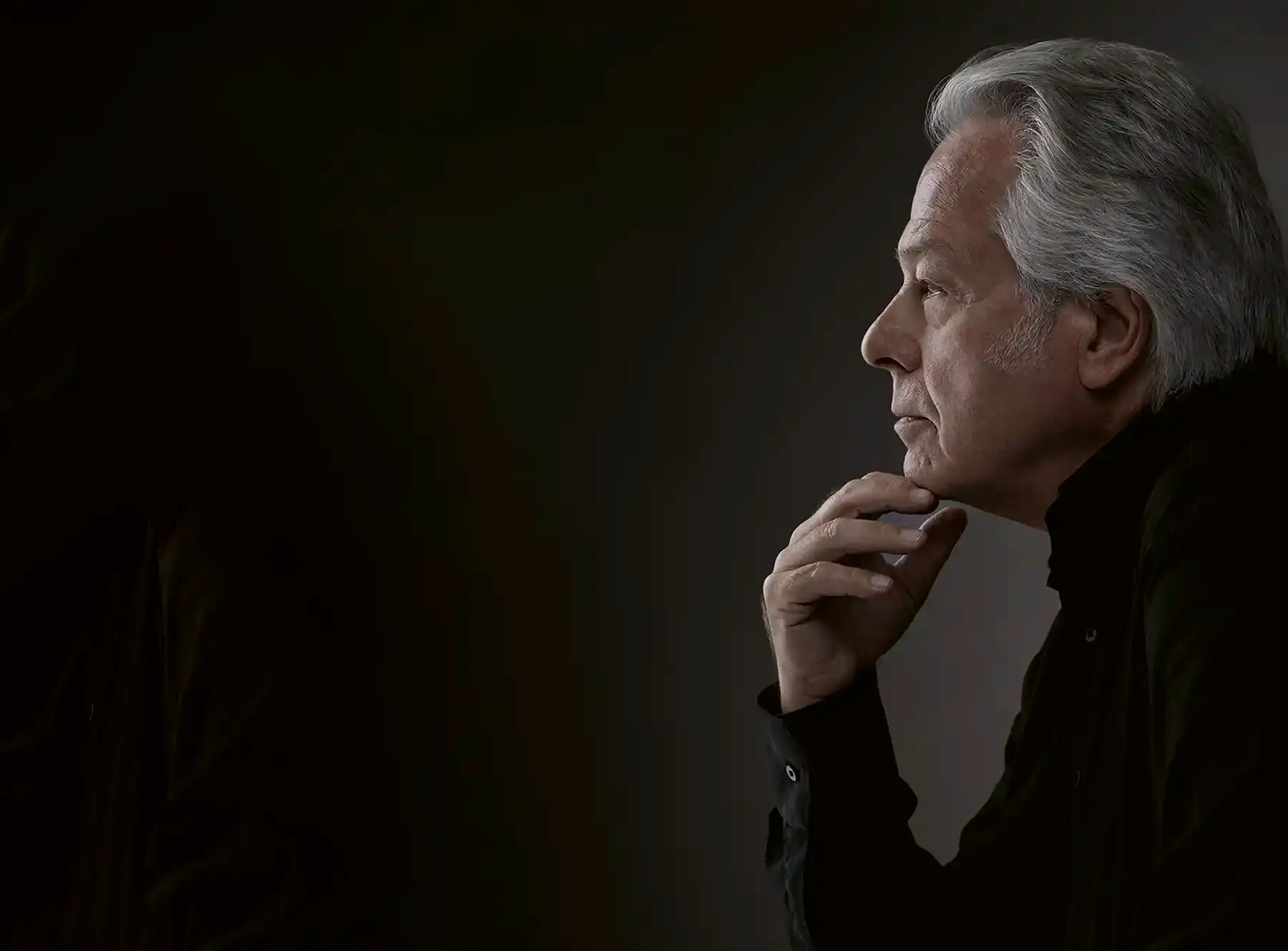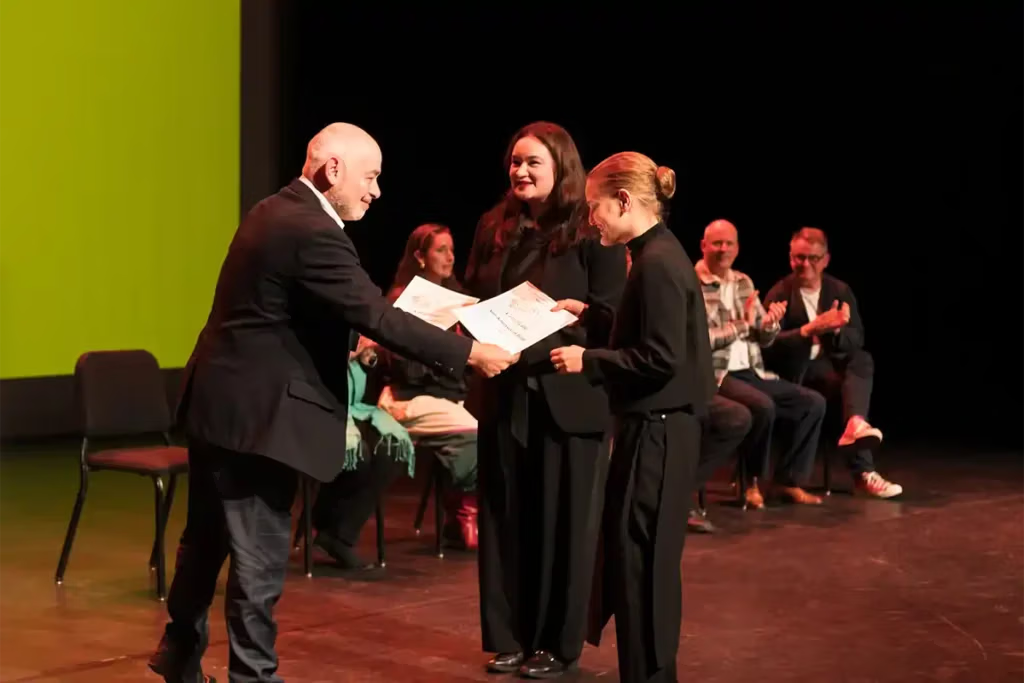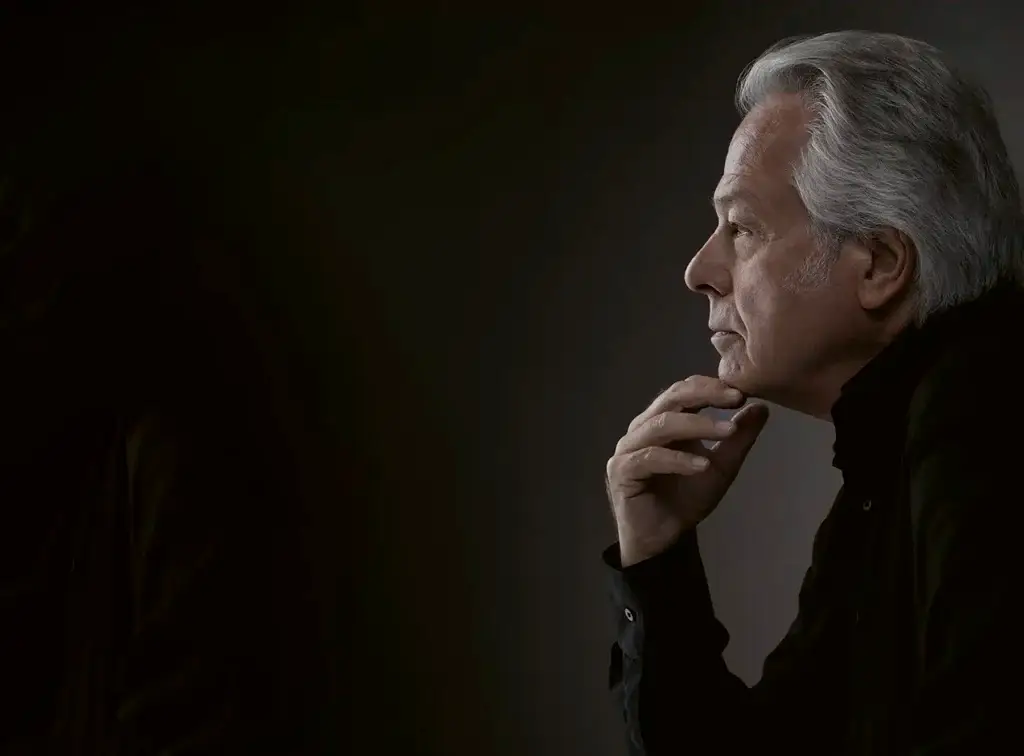Interview Maartje Stokkers
'They are dark songs, yes, they are about love and loss, but there is really some hope.' Prégardien has a few days' holiday after a recital in Antwerp and explains the programme from the car: 'It started as an experiment. We are swapping the 11 songs from Rihm's collection Ende der Handschrift by poet Heiner Müller off with Schubert songs set to poems by Ernst Schulze.'
'Even though there is 200 years between the music of Rihm and Schubert, the mix works well because the songs fit together in terms of key and emotions. While contrasting atmospheres are actually created here and there.'
Prégardien is accompanied by Hans Eijsackers, who together with baritone Henk Neven forms the artistic leadership duo of the song festival in Zeist.
Eijsackers: 'He did that beautifully, that combination of songs. In Schubert's Auf der Bruck you gallop expectantly along with a man on horseback to his sweetheart, who turns out not to be there at all. Seamlessly it turns into Glückloser Engel by Rihm, in which you suddenly find yourself "between town and city, after the wall ... the abyss". Here the beloved is visible, but who is she really?'
'Then follows in Im Frühling by Schubert, about the nostalgia of a place, in this case nature in spring, where you were once happy with your lover. The beauty of nature is still there, but that lover and that happiness are no more. The first-person sees a way out: be a little bird, then he could sing sweetly about her in the tree all summer long.'
'The answer to this is Rihms Nature morte, containing the image of three dangling bodies in the light of the moon. The songs mutually place themselves in a sometimes new context, or they accentuate the associations evoked.'
Can you call Wolfgang Rihm the 21st-century Schubert?
Prégardien: 'Rihm has been one of the composers who realised that the link between poetry and music must be understandable. The music of the 1960s and 1970s was far too difficult; people longed for melodies and harmonies that were logical and clear.'
'When you listen to Rihm's songs, you hear that he approached poems in the same way as the composers of the 19th century, such as Schubert and Schumann. Rihm's music is enormously expressive, going from dark but rock-hard depths to uncomfortable heights. The pessimism expressed in Heiner Müller's lyrics is just about palpable.'
Prégardien is almost 70 and still a sought-after singer. What is his secret? 'I stopped teaching. I have more time, not only for music but also for my family. I am mentally and physically healthy and, coincidentally, my voice still works. It has changed though, the high notes don't work well anymore. I adapt music, sing some songs a note lower, for instance, I think that's legal.'
'In doing so, I listen critically to recordings of myself, try to hear signs that tell me to stop. So far, I haven't heard them. I also just love being on stage so much. For me, it's a form of psychotherapy, I can express my feelings there.'
Your son Julian is also a singer. Do you consider him your successor?
Prégardien: 'Julian certainly doesn't want to be called my successor. He had a difficult time at the beginning of his career. With me as a father, he had it easy on one side and not at all on the other. He had to stand firm. Initially, I didn't even want him to become a singer too, because I was afraid of problems between us. I tried to talk it out of his head, but fortunately I didn't succeed. Now we are also on stage together and then we are soulful.'





